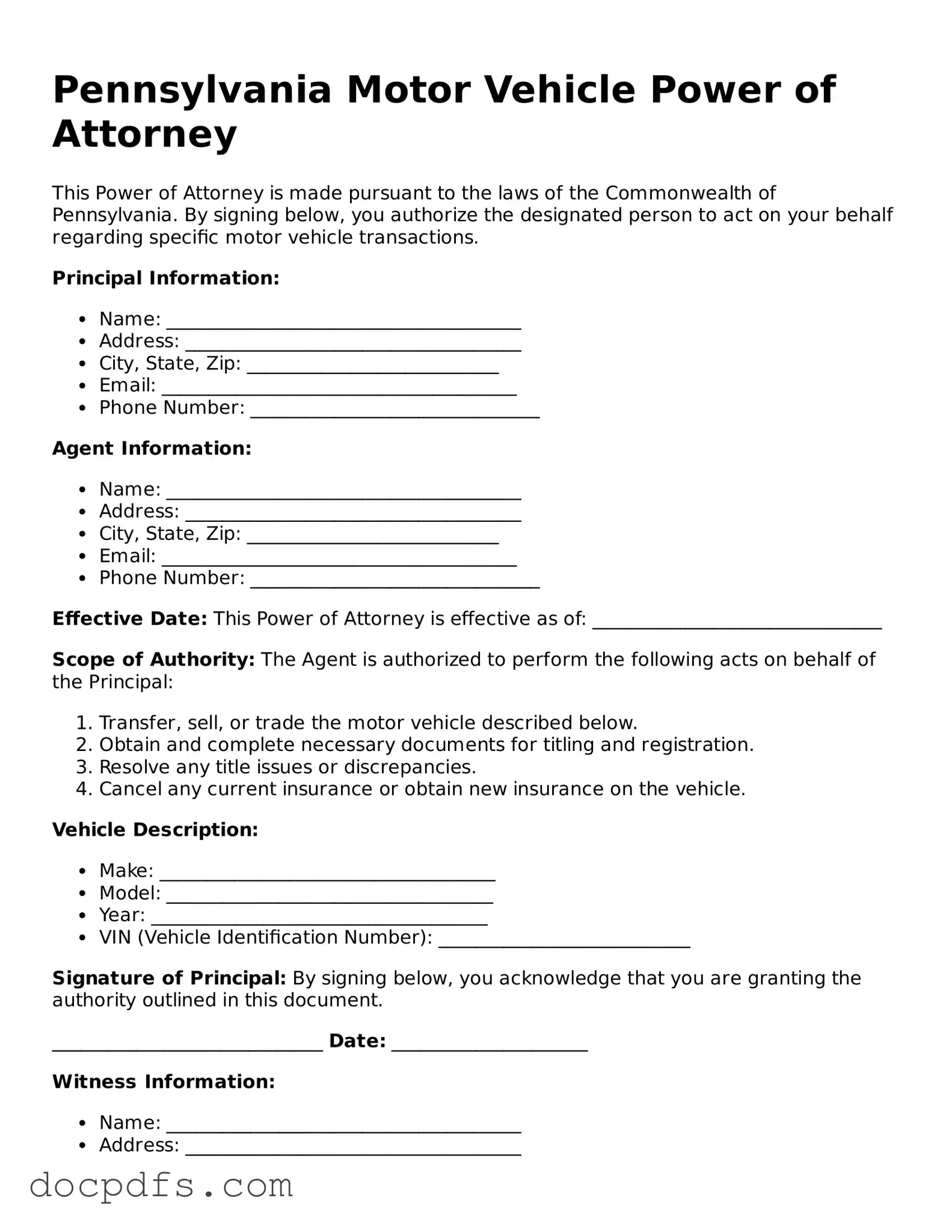Free Pennsylvania Motor Vehicle Power of Attorney Form
The Pennsylvania Motor Vehicle Power of Attorney form is a legal document that allows one person to authorize another to act on their behalf regarding motor vehicle transactions. This form is particularly useful for individuals who may be unable to handle these matters themselves due to various reasons. By granting this authority, the principal can ensure that their vehicle-related needs are met efficiently.
Open Motor Vehicle Power of Attorney Editor Now

Free Pennsylvania Motor Vehicle Power of Attorney Form
Open Motor Vehicle Power of Attorney Editor Now

Open Motor Vehicle Power of Attorney Editor Now
or
⇓ Motor Vehicle Power of Attorney
Finish this form the fast way
Complete Motor Vehicle Power of Attorney online with a smooth editing experience.